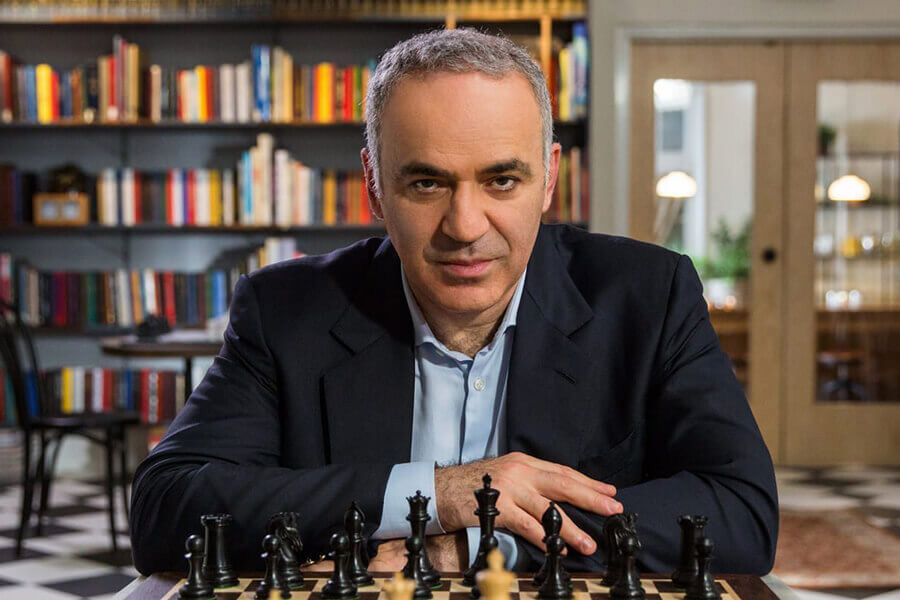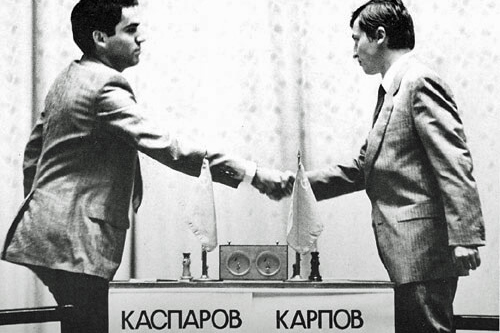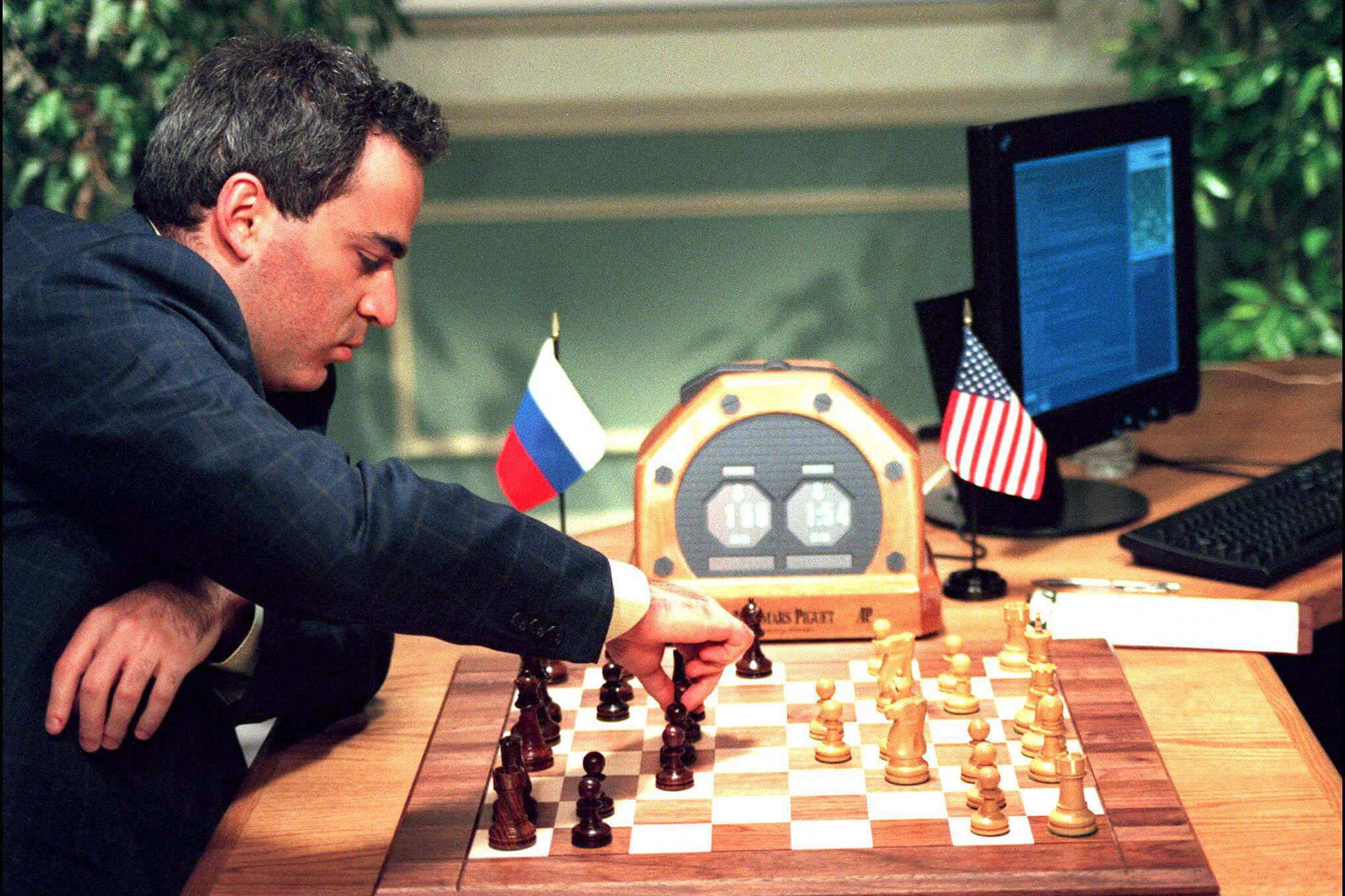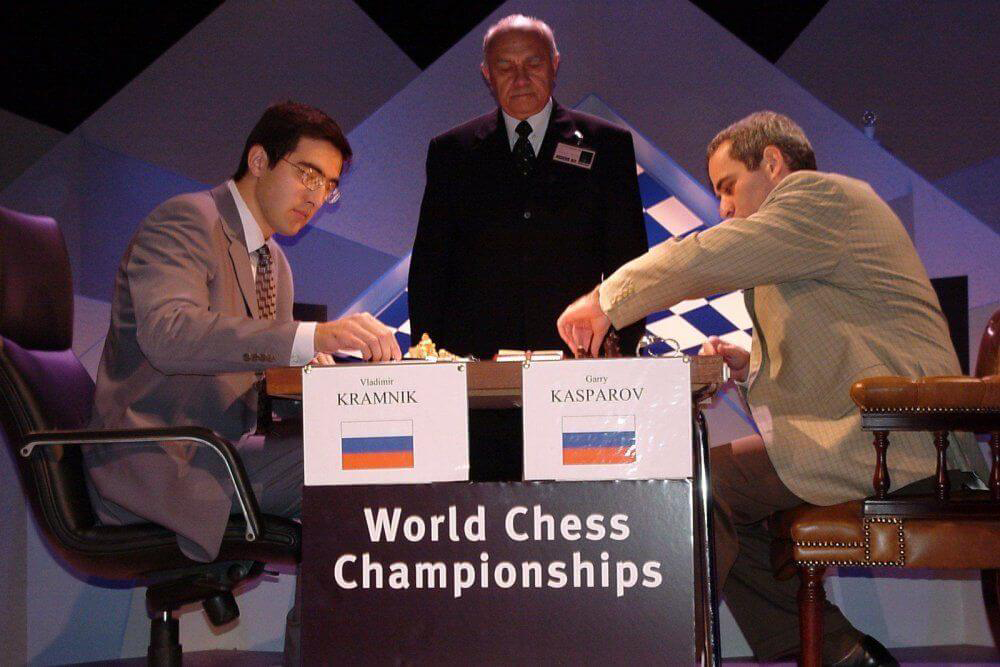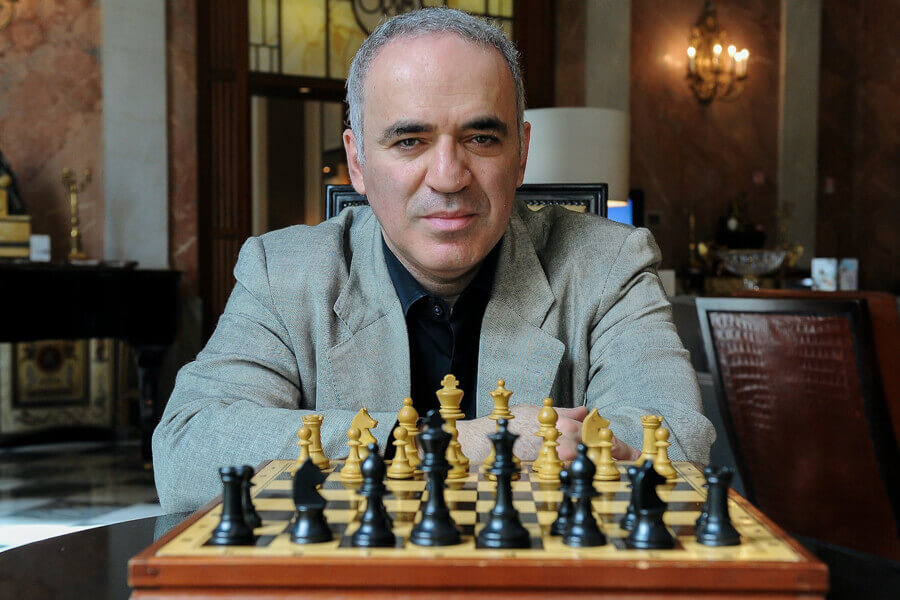No products in the cart.
Chess Players
The Legendary Chess Player – Garry Kasparov
Garry Kasparov is a name that is synonymous with the game of chess. Widely considered one of the greatest chess players of all time, Kasparov dominated the chess world from the 1980s to the early 2000s. He is known for his aggressive and dynamic playing style, as well as his groundbreaking matches against computers, including the famous 1997 match against IBM’s Deep Blue. Let’s explore Kasparov’s life, his greatest accomplishments, and his impact on the game of chess.
Table of Contents
Garry Kasparov’s Early Life and Chess Career
Garry Kasparov is widely regarded as one of the greatest chess players of all time. He was born in Baku, Azerbaijan in 1963, and began playing chess at a young age. Kasparov’s prodigious talent soon became apparent, and he quickly rose through the ranks of the Soviet chess establishment. Kasparov’s breakthrough came in 1985 when he became the youngest-ever undisputed World Chess Champion at the age of 22. He held the title for 15 years until he was defeated by Vladimir Kramnik in 2000. During his reign as World Champion, Kasparov was known for his aggressive and innovative play, and his intense rivalries with other top players, including Anatoly Karpov and Viswanathan Anand.
In addition to his success in classical chess, Kasparov was also a dominant force in rapid and blitz chess, winning numerous world titles in these faster time controls. He was also a pioneer in computer chess, famously losing a match against the IBM computer Deep Blue in 1996, but later working on the development of chess-playing software.
Kasparov’s Famous Matches and Rivalries
Garry Kasparov’s name is synonymous with some of the most famous chess matches and rivalries in history. From his legendary battles with Anatoly Karpov to his showdowns with IBM’s Deep Blue computer, Kasparov’s career has been filled with dramatic moments that have captivated the chess world.
Kasparov v. Karpov in 1980s
One of Kasparov’s most well-known rivalries was with Karpov, with whom he played a series of matches in the 1980s that became known as the “Kasparov-Karpov World Championship Matches. The two players were evenly matched, and their games often lasted for hours, pushing them to the limits of their physical and mental endurance. Kasparov was known for his aggressive playing style, while Karpov was more defensive, leading to some highly strategic and tense games.
Their rivalry reached a peak in 1984 when they played a marathon 48-game match for the world championship. The match lasted for five months and ended in a draw, which allowed Karpov to retain his title. The rematch in 1985 was equally intense, with Kasparov winning the first game but then losing the next two. He then went on to win two games himself, and the match was called off due to exhaustion after 48 games with the score tied at 12-12. Their next two world championship matches, in 1986 and 1987, were similarly grueling, with Kasparov winning both times. However, Karpov remained a formidable opponent, and they continued to play each other in various tournaments and matches over the years.
Despite their intense rivalry, Kasparov and Karpov also had a deep respect for each other’s playing abilities. They both pushed each other to become better players and helped to elevate the game of chess to new heights. Today, their matches remain some of the most famous and iconic moments in the history of chess.
Kasparov v. Deep Blue 1996
In addition to his matches against other human opponents, Garry Kasparov also made headlines for his matches against computers. One of the most famous of these matches was against Deep Blue, IBM’s chess-playing computer. In 1996, Kasparov faced off against Deep Blue in a highly publicized six-game match. Kasparov managed to emerge victorious in this match, winning three games and drawing the other three. However, the following year, in a highly anticipated rematch, Kasparov lost to Deep Blue. This loss was a major moment in the history of chess, as it marked the first time that a reigning world chess champion had been defeated by a computer in a match. Despite the loss, Kasparov continued to play against computers and has since become an advocate for the use of AI and machine learning in chess, noting that it has helped to revolutionize the way the game is played and analyzed.
Kasparov v. Kramnik 2000
The match between Kasparov and Kramnik in 2000 was highly anticipated, as it was a clash between the reigning world champion and the challenger. It was billed as the “Classical World Chess Championship” and was played over the course of several weeks in London. The match was closely contested, with both players showing impressive skill and strategy. However, Kramnik managed to win two games and draw the remaining ten, which was enough to secure the victory and the world championship title.
The match was notable not just for the high level of play, but also for the controversy surrounding it. Kasparov had been heavily favored to win, and his loss was seen as a major upset. Some questioned the format of the match, which allowed for draws to count toward the final score. Others speculated that Kasparov’s focus may have been affected by his ongoing feud with FIDE, the international chess federation.
Despite the loss, Kasparov continued to play at a high level for several more years. However, the match against Kramnik marked a turning point in his career, as he began to play less frequently and eventually retired from professional chess in 2005.
Kasparov’s Legacy in the World of Chess
Garry Kasparov is widely considered one of the greatest chess players of all time, and his legacy in the world of chess is profound. He not only dominated the chess world during his career, but he also helped to popularize the game and bring it to a wider audience.
Kasparov’s aggressive and tactical style of play inspired a new generation of chess players, and he played a major role in the evolution of the game. He was known for his ability to calculate multiple moves ahead, his exceptional strategic planning, and his relentless pursuit of victory. Beyond his impressive playing career, Kasparov has also been an advocate for chess education and has worked to promote the game in schools and communities around the world. He has authored several books on chess and has made numerous appearances in the media to discuss the game. Kasparov’s legacy also includes his contributions to the development of computer chess. His famous matches against Deep Blue in the 1990s helped to push the boundaries of what computers were capable of in terms of chess-playing ability. Today, chess engines are an essential tool for many players and are used to analyze and improve their game.
Overall, Kasparov’s legacy in the world of chess is marked by his exceptional playing ability, his advocacy for the game, and his contributions to its evolution and development. He will always be remembered as one of the greatest players in the history of the game.

